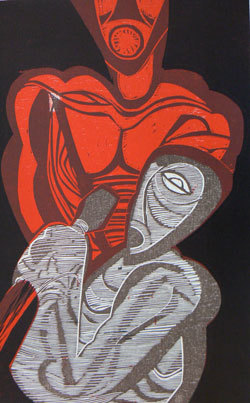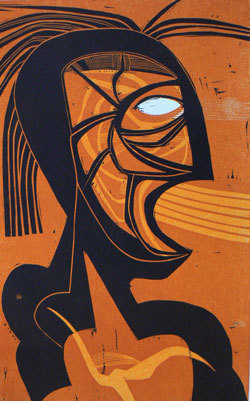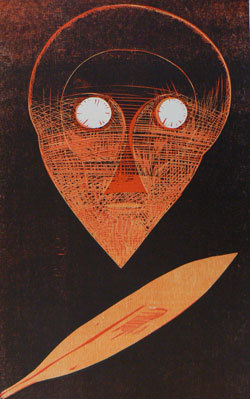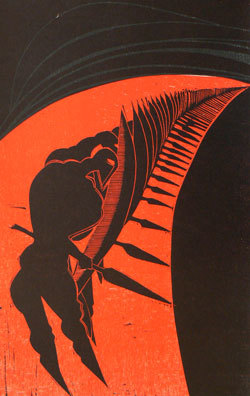Cecil Skotnes
Skotnes was a prominent and central figure in South African art history during the 20th century. He emerged alongside other young artists in the 1950s after WWII and embraced the South African identity and generated visual art distinctly influenced by European trends, which still retained strong South African themes and connections to traditional heritage. He exhibited his work to much acclaim in a number of European countries as well as in Namibia and Israel.
Initially attracted to drawing and painting by artists such as Pablo Picasso and Henry Moore during a visit to Europe in 1951, it was the colonial collections from Africa however which had a greater influence on works produced by Skotnes.
It was as a printmaker though that he subsequently made his greatest impact as an artist and later explored woodcutting. This proved to be a perfect medium for him since it offered potential to discover new form for the symbolism he attributed
to his work. Skotnes extended the potential of this medium by his use of large scale in his prints and by the early 1960s started exploring the possibilities presented by the woodblocks themselves as independent art works, engraving, colouring and texturing them. He contributed a three-colour woodcut for the Nobel Prize portfolio in honour of Nobel Peace Prize winner Chief Albert Luthuli in 1960.
It was Skotnes's role as Cultural Recreation Officer at the Non-European Affairs Department at the Polly Street Art Center
in Johannesburg from 1952 until 1966 however, that made a significant contribution to the history of the emergence
of diverse black urban art in South Africa. Polly Street served to provided space for artistic training for black artists.
Skotnes was motivated to nurture talent and encourage creativity amongst communities oppressed by the apartheid government. Skotnes was also the founding member and trustee for the Community Arts Project in Cape Town.
Through his leadership and guidance many black artists received training and launched their professional careers
from Polly Street Center and Community Arts Project.
Skotnes was awarded the prestigious The Order of Ikhamanga in Gold for his exceptional achievement in, and the deracialisation of the arts, and for the outstanding contribution to the development of black artists.
ARCHIVED WORKS
Lowveld, Woodcut 515mm x 660mm





